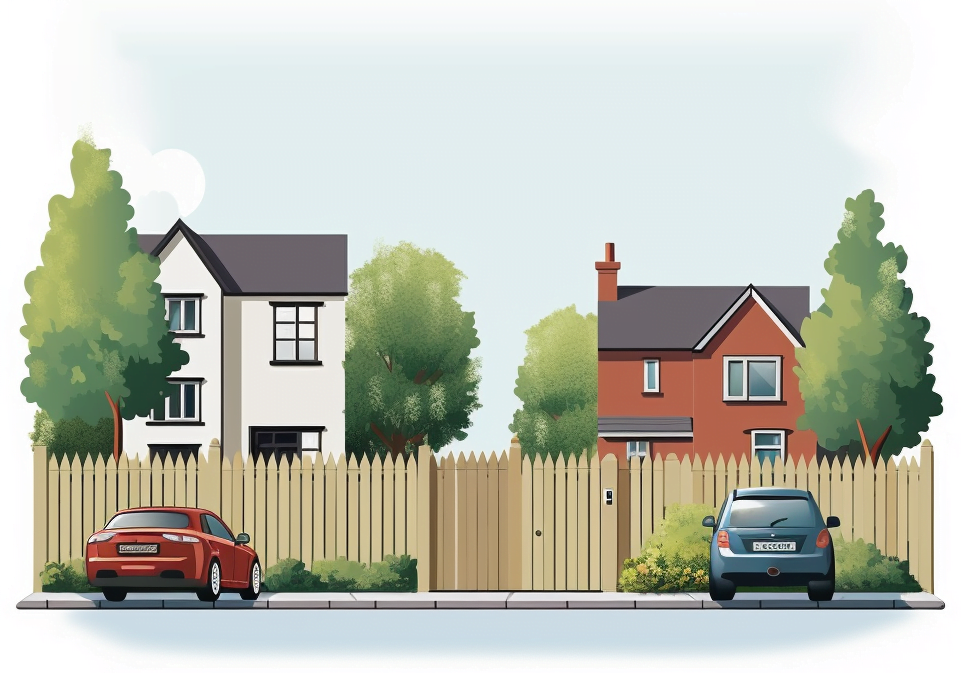Access disputes between property owners can lead to significant tension and conflict. This comprehensive guide delves into the most common causes of these disputes and offers resolutions to help both parties find common ground.
- Introduction
- Common Causes of Access Disputes
- Resolving Access Disputes
- Preventing Future Disputes
- Conclusion
Introduction
Access disputes arise when one property owner feels their right to access their property is being hindered or blocked by another. These disputes can be complex, often involving legal nuances, historical rights, and emotional tensions. Understanding the root causes and potential solutions is crucial for any property owner. Such disputes not only strain relationships but can also lead to legal battles, which can be both time-consuming and costly.
Common Causes of Access Disputes
- Shared Driveways: When two properties share a driveway, disagreements can arise regarding its use, maintenance, and boundaries. For instance, one owner might park their vehicle in a manner that blocks the other’s access. Over time, such issues can escalate if not addressed promptly.
- Right of Way: A right of way allows one property owner to pass over another’s land, usually to access their own property. Disputes can arise if the right of way is blocked, its boundaries are unclear, or if there’s disagreement over its historical use. Such rights are often established over time and can be a source of contention if new owners are unaware of them.
- Overhanging Trees and Shrubs: Trees or shrubs from one property that overhang onto another can lead to disputes. This is especially true if they cause damage, obstruction, or if they drop leaves and debris onto the neighbouring property. Such natural obstructions can lead to disagreements about who should bear the cost of maintenance or removal.
- Boundaries: Unclear or disputed boundaries between properties can lead to disagreements over land ownership and usage. This can be due to historical changes, natural shifts in land, or inaccuracies in property deeds. Boundary disputes can be among the most contentious, as they directly concern land ownership.
- Construction and Development: Building projects can lead to disputes, especially if they obstruct a neighbour’s view, access, or if they believe it might devalue their property. Such disputes can arise from misunderstandings about planning permissions or building regulations.
Resolving Access Disputes
- Open Communication: Before taking any legal action, it’s essential to communicate openly with the other party. A simple conversation can often resolve misunderstandings. It’s always best to approach such discussions calmly and with a willingness to understand the other party’s perspective.
- Mediation: If communication fails, consider mediation. A neutral third party can help both sides come to an agreement, avoiding the need for costly and time-consuming legal battles. Mediation offers a more amicable solution and can help preserve relationships.
- Legal Advice: If the dispute continues, it may be time to seek legal advice. A solicitor can guide you through your rights, potential courses of action, and the likely outcomes of any legal proceedings. They can also help you understand the complexities of property law.
- Land Registry: Checking the Land Registry can provide clarity on boundaries and rights of way, helping to resolve disputes. It’s a valuable resource for confirming property details and can offer a definitive answer in many cases.
Preventing Future Disputes
- Clear Agreements: When sharing resources like driveways or paths, have a clear written agreement outlining each party’s responsibilities. This can prevent misunderstandings and provide a reference point in case of disputes.
- Regular Maintenance: Regularly maintaining shared spaces, trimming overhanging trees, and ensuring clear access can prevent many disputes from arising. It’s also a sign of good neighbourly behaviour.
- Boundary Surveys: If boundaries are unclear, consider having a professional survey done to establish clear property lines. This can be a worthwhile investment to prevent future disagreements and can provide peace of mind.
Conclusion
Access disputes between property owners can be stressful and time-consuming. However, with open communication, a willingness to compromise, and a clear understanding of one’s rights and responsibilities, most disputes can be resolved amicably. Being proactive and seeking early resolutions can save both time and money in the long run, and help maintain good neighbourly relations.
Note: This article is intended for informational purposes only and does not constitute legal advice. Always consult with a legal professional before taking any action.

